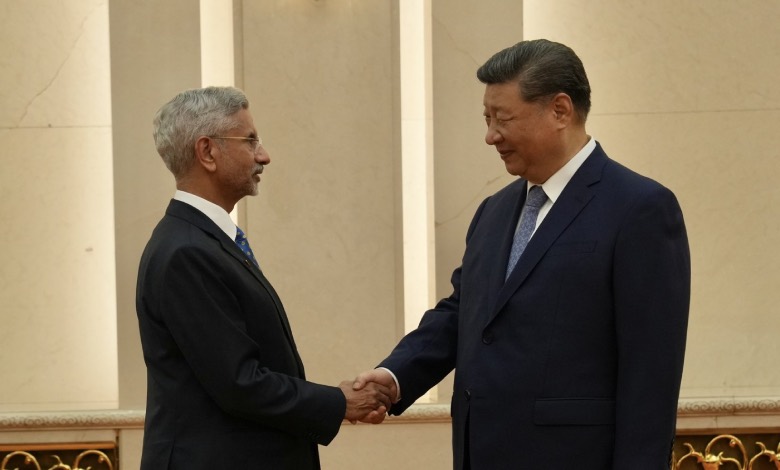
In a high-level meeting, External Affairs Minister S. Jaishankar urged his Chinese counterpart to focus on de-escalation along the LAC and warned against allowing other nations to define their bilateral relationship.
India’s External Affairs Minister, S. Jaishankar, has firmly communicated to his Chinese counterpart, Wang Yi, that the India-China relationship has no place for third-party involvement, in a clear reference to Pakistan. During their meeting on July 14, Jaishankar emphasized that the interests of any other nation should not influence the dynamic between New Delhi and Beijing, particularly in the aftermath of the 2020 military transgressions by the People’s Liberation Army (PLA) in East Ladakh.
Jaishankar expressed satisfaction over the Indian army’s recent resumption of patrols in the Depsang Plains and Demchok area, a development following an agreement reached in October 2024. He stressed that a “stable border” is the foundation of a stable bilateral relationship and called for both sides to prioritize de-escalation. He noted that five years after the Galwan skirmish, a significant military presence of approximately 50,000 troops, tanks, and heavy artillery remains on both sides of the 1,597 km Line of Actual Control (LAC) in East Ladakh.
Also read: India’s Clear Message To China : Dalai Lama Lone Will Decide His Successor
The discussions also covered economic issues, with Jaishankar pressing Politburo member Wang to guarantee predictable supply chains and avoid imposing export restrictions on India. This request comes after China recently placed constraints on the export of critical minerals used in magnet manufacturing and on certain fertilizers.
The minister’s warning against third-party interference is considered significant, as China supplies 81% of Pakistan’s military hardware, equipment that was prominently featured during the recent “Operation Sindoor.”
Also read: Jaishankar Urges SCO to Take Firm Stand Against Terrorism After Pahalgam Attack
Jaishankar Addresses Terrorism at SCO Meeting
Separately, at the Shanghai Cooperation Organisation (SCO) Foreign Ministers’ meeting on July 13, Jaishankar’s primary focus was on terrorism. Reminding attendees that the SCO was established to fight terrorism, separatism, and extremism, he justified India’s recent actions against terrorist camps in Pakistan. He stated these actions were consistent with UN Security Council Resolution 16050, which was passed unanimously with support from China, Russia, and Pakistan following the Pahalgam terror attack. The resolution empowers nations to hold the “perpetrators, organizers, financiers and sponsors of terror” accountable.




